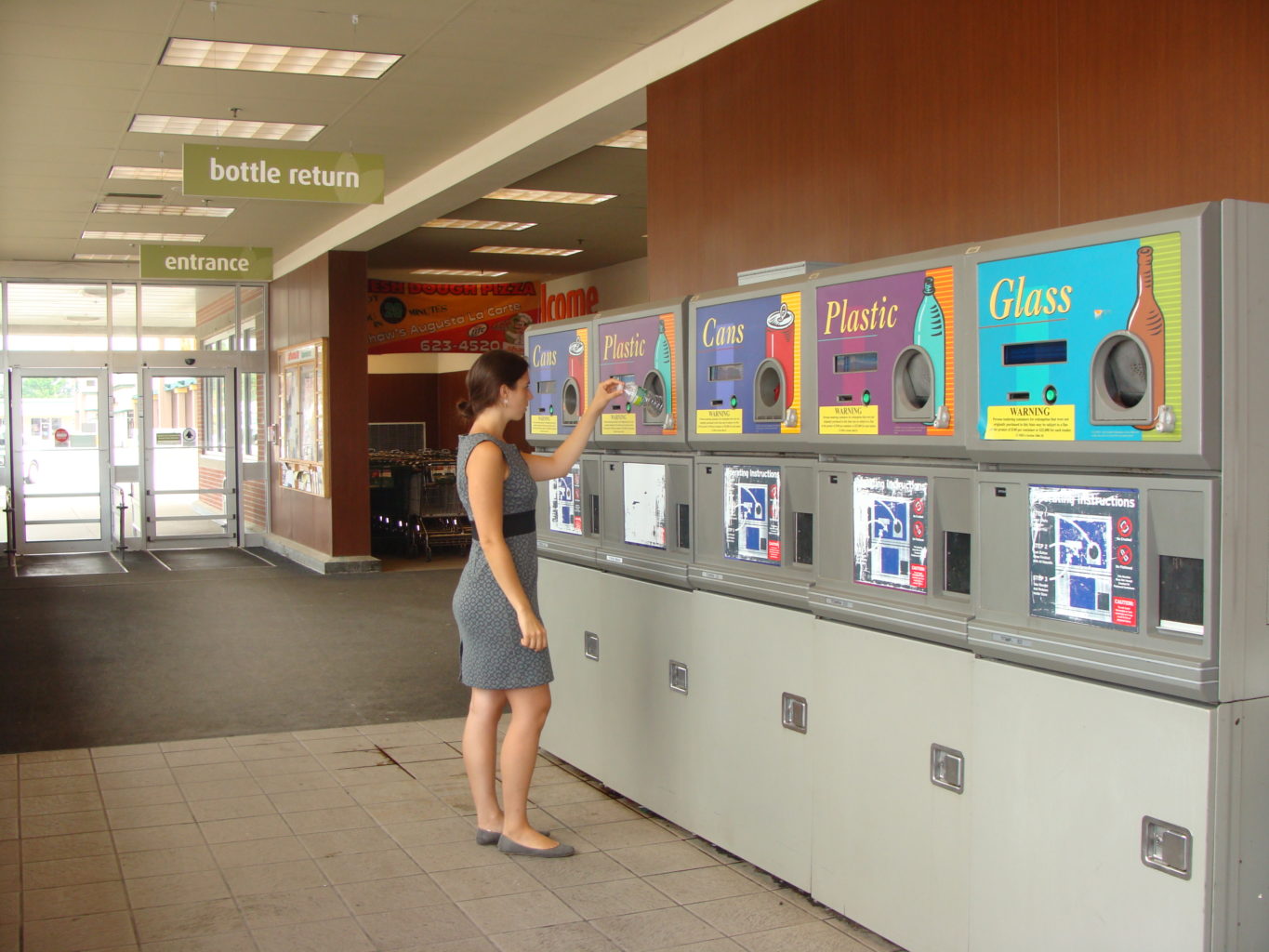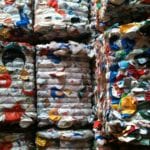It’s been more than a year since China announced that they will no longer buy the world’s contaminated recyclables, and we are feeling the effects here in Maine. Unless the baled recycled materials (stuff we put in our household recycling bins, among other sources of recyclables) meet a very strict, almost perfect, quality standard—only 0.05% contamination—China doesn’t want it. And there are some materials China doesn’t want at all, regardless of contamination. In other words, our recyclables are too dirty to sell to the largest importer of recycled commodities, China; and we don’t have enough other demand for these commodities to keep the system going as usual. Meanwhile, the cost to send our waste to a landfill or waste-to-energy facilities remains relatively low, and we don’t have policies in place to prevent recyclables from being burned or buried.

As a result, some towns in Maine are beginning to abandon their recycling programs all together because it is becoming cheaper to just throw everything “away.” Other towns are still recycling, but not collecting as many types of materials as they were. Many towns are doing their best to reduce contamination in their programs. Some towns may be willing to pay more to continue their recycling programs, but others are not. In a way, this is indicative of part of the problem: every municipality is responsible for figuring this out on their own—and paying for it with local taxpayer dollars. This method of waste management has always been frustratingly inconsistent, inefficient, and inequitable—and now more glaringly so.
Like any market, there have always been fluctuations in the price and demand for recycled commodities, but this time is different—it’s unprecedented. It’s a recycling crisis, because the industry needs systemic changes to continue to work, and the consequences of a complete recycling failure are dire if we are to sustain the limited resources provided to us by our planet.
The recycling economy relies on having a steady supply of clean, recycled commodities that are actually used as a feedstock into new products—reducing the need to use virgin materials. The industry also needs consumers to buy products made with recycled content, or products that can be recycled, and then keep on recycling. And the shorter the distance between each step in this chain, the better for our climate. When you think about it, how sustainable was it to send our contaminated waste all the way to China anyway?
It’s important to note that the cleanest recycled commodities we produce are from our beverage-container redemption programs. This recycling program also reduces litter, creates jobs, and alleviates taxpayer expense for managing this waste stream. It’s estimated that about 90 percent of our beverages containers are recycled, which is more than double the state average for recycling rate even before this crisis. Given the collapse of some local recycling programs, it’s absolutely crucial that there is still a place that Mainers can at least recycle their beverage containers. Thank goodness for Maine’s Bottle Bill.

Waste professionals from Maine and beyond can and will figure this out.
As a citizen and consumer, this is what you can do to help:
- Reduce waste Don’t forget the other two R’s—reduce and reuse. Recycling is one way we can deal with our excessive waste, but ideally we would have less to begin with. Take a look at your household trash and see what you are making the most of and then make some changes to prevent it from being in there. Then tackle another type of your waste, and so on. No matter what the recycling market looks like, it’s always best to create less waste needing to be disposed of. Relying on item’s “recyclability” as a reason to use it is a bad argument, it’s better to use a reusable alternative or skip it all together.
- Recycle right As a whole, Maine has an inconsistent and confusing system of recycling, with different towns accepting different things. Find out what your town accepts and follow it closely—keep it posted on your fridge or above your recycling bin. Just because you wish or think something should be recyclable, it doesn’t mean it is. The revolving arrows can be confusing, because it only indicates the type of material it is, not whether or not it is recyclable locally. Take the time to educate yourself. No foam food containers or plastic film can be put in single-stream recycling! Download ecomaine’s Recylopedia app even if your town doesn’t send your recycling there. It has useful information for anyone with a recycling question.
- Buy stuff made with recycled content To create markets for recycled commodities, it is very important that there is an end market for it. When you must buy something, get in the habit of checking the label and opting for products that use post-consumer recycled content. Educate yourself on the brands and products that use recycled content, and contact companies that you buy from to request that they use recycled content in their manufacturing process because it matters.
- Support policies that bolster a strong recycling economy It is crucial that governments step in to correct market failures that have been complicit in creating this crisis. One of the problems is that the producers of our products and packaging are not the same people who are left to clean up the mess it creates, or to pay for it. There is no incentive to create products and packaging that are recyclable or made with recycled content, so it’s no wonder that it doesn’t happen as often as it should. Further, it’s not efficient to have a piece-meal approach to recycling throughout our state – a uniform system would create a better economies-of-scale and would be less confusing for people standing above the recycling bin wondering what to do with it. Join NRCM’s Action Network and take every opportunity to make your voice heard.
For better or for worse the human species has consistently proven that we need a crisis to make necessary changes to the way we impact our habitat, and that of future generations. Think of the Love Canal and Silent Spring—both instances where people showed disregard for the consequences of their collective actions, but it eventually led to systemic change. Even now, environmental catastrophes like plastic pollution and climate change are still not being addressed by humans as the crises that they really are.
Unfortunately, history has shown that this waste and recycling problem may have to get a lot worse before it gets better; think of what will happen with maxed out landfills and we confront increasingly scarce resources? As daunting and costly as this growing crisis is and may become, it will ultimately lead to a more sustainable system of materials management. What other option do we have than to act? There is no Planet B.
—by Sarah Lakeman, NRCM Sustainable Maine Project Director














It is so sad that we have communities that do not recycle at all. And so much garbage even on the streets, lakes, rivers and oceans. Our country is really going to be in a real mess years to come. Everyone has to really think about how lives will be effected. When everything is gone in the oceans. And no fish at all.